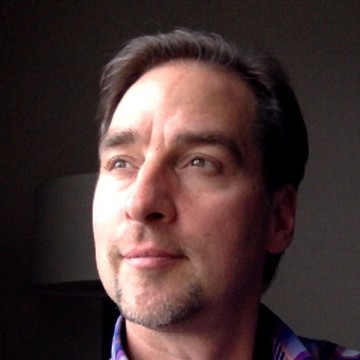Tag Archive: complexity
April 4, 2017
“You’ve got to keep asserting the complexity and the originality of life, and the multiplicity of it, and the facets of it.”
– Toni Morrison

Once again, I’ve been re-reading Niels Pfleaging’s short book Organize for Complexity (and eager for the release of the English version of Complexitools) amidst the growing demand we are hearing at IISC from people who want to liberate their organizations and themselves to be able to intelligently respond to change and to come back to life! Here’s the gist – as things shift more, and more rapidly, some people’s inclination may be to try to exert greater control or dig in to what is familiar, but does not work. The more one does so, the worse things can get. As Pfleaging writes, we see a “high price for the illusion of control.” Within organizations this takes the form of various gaps – social, functional, and temporal – that make them increasingly irrelevant, ineffective and irresponsible.
Responding to complexity requires (to borrow a phrase from Eugene Eric Kim) new muscles and mindsets.
Read More
December 6, 2016
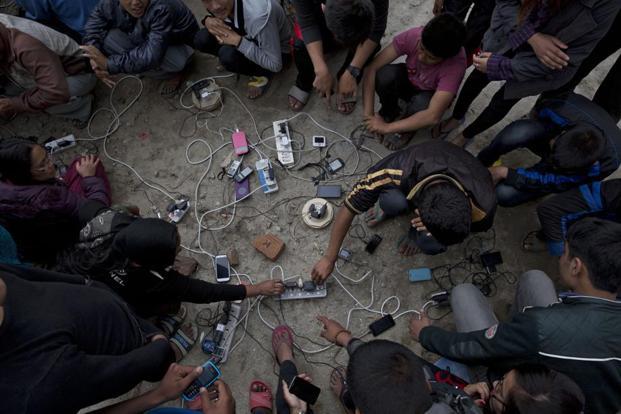
Over the recent Thanksgiving break, I had the opportunity to meet with friends of extended family members, a couple who are engaged in both disaster relief and community planning work. She is from Nepal and he is from the U.S., and together they relayed a story about their time visiting Nepal during the devastating earthquake of 2015.
The two of them were hiking in the mountains when the 7.8 magnitude quake struck. Shaken but not hurt, they made their way back to Katmandu as quickly as possible to check in on family members and then to offer their assistance to others. Originally assigned the task of loading water jugs on trucks, they then volunteered and were enlisted for their translation skills, and headed out to some of the hardest hit villages with international relief workers. Read More
August 9, 2016
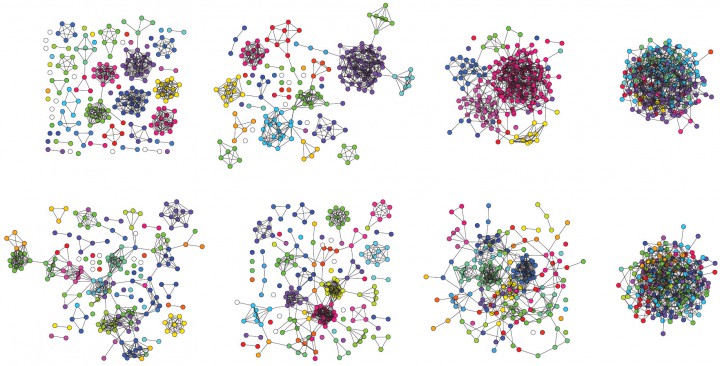
Social change networks are complex, compared with other human organizational forms; they are not so easily controlled, directed or predicted. And that is as it should be, especially when dealing with real life diversity and uncertainty. This can cause some anxiety on the part of those who would like to be able to better control for outcome and process and may not be very comfortable with emergence and self-organization. But these are the life blood of complex networks, part of their intelligence and effectiveness, even as people may struggle to wrap their heads around the full picture of what is happening. That’s the way life works.
That said, experience suggests that there is an important effort to be made and role to be played in tracking (even if imperfectly and incompletely) the unfolding story of a social change network over time. This is especially important for those in pursuit of hard evidence of effectiveness and/or some kind of guarantee that there is return on one’s investment of time and other resources. I have noted previously and continue to be struck by the fact that seeing signs of network impact can indeed be difficult, perhaps because of a kind of conditioning around what constitutes “action” and “success.” Furthermore, the pace of life can cut against an appreciation for what is moving right before one’s eyes in fairly nuanced and perhaps more measured ways. Read More
January 5, 2016

A couple of years ago, I was turned on to the work of Louise Diamond. Diamond has been bringing insights from the dynamics of complex systems to peace building work for many years. Her efforts connect to a growing number of practitioners and thinkers who see the need to approach social change with an ecological and evolutionary mindset. In one of her papers, she extracts some of the “simple rules” that yield core practices for working in this way. Here I have adapted and adjusted some of them in application to network building for change and resilience in food systems. Read More
September 4, 2015
“Innovation is as much a function of the right kind of relationships as it is of a particular kind of individual vision.”
-Carter Phipps
 I generally cap off the summer with a post about some of my summer reading. I am still working on something to capture take-aways from one of my favorite reads – The New Science of Sustainability: Building a Foundation for Great Change – and am offering here a revised post from a few years back that focuses on a still very timely book.
I generally cap off the summer with a post about some of my summer reading. I am still working on something to capture take-aways from one of my favorite reads – The New Science of Sustainability: Building a Foundation for Great Change – and am offering here a revised post from a few years back that focuses on a still very timely book.
I ended my summer reading with what was for me a fascinating book – Evolutionaries by Carter Phipps. Phipps is the editor of EnlighteNext magazine and enthusiastic about what we calls “the evolutionary worldview” and how it is showing up in many different fields, from biology to sociology to philosophy and theology. He sees this perspective as transforming understandings of just about everything. Evolutionaries does a great service by deepening and broadening as well as bringing much more nuance to what I see as a very important perspective for the work of social change. Read More
July 22, 2015
“We are actually waiting for civilization both to learn and reorganize itself with more intricacy, more collaborative coherence and greater social intelligence.”
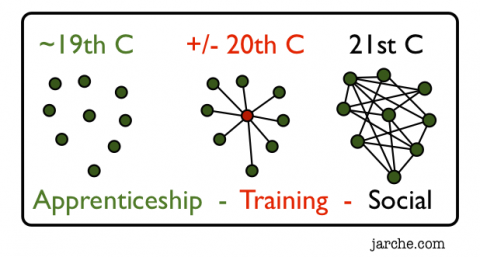 Two weeks ago I wrapped up Harold Jarche’s on-line course on social learning and am committing to practicing some of what I learned through blogging as “learning out loud.” This is not an entirely unusual practice for me, but Harold has helped me to better appreciate the value of turning off the critic and putting “rough draft thinking” out there, as a way of crystalizing and mastering my own knowledge but also (possibly) connecting it to others who may be on the same wavelength/ have similar lines of inquiry and (perhaps) contributing to social change. Preposterous? Maybe.
Two weeks ago I wrapped up Harold Jarche’s on-line course on social learning and am committing to practicing some of what I learned through blogging as “learning out loud.” This is not an entirely unusual practice for me, but Harold has helped me to better appreciate the value of turning off the critic and putting “rough draft thinking” out there, as a way of crystalizing and mastering my own knowledge but also (possibly) connecting it to others who may be on the same wavelength/ have similar lines of inquiry and (perhaps) contributing to social change. Preposterous? Maybe.
But consider how our understanding of how the world works is shifting through our ability to see connections, appreciate the social creation of knowledge and grasp the emergent nature of change. Seeing reality through a living systems lens helps us to understand ideas as seeds, expression as sowing, interaction as fertilizer and social networks as the metabolic infrastructure to bring new things fully to fruition. Read More
March 26, 2015
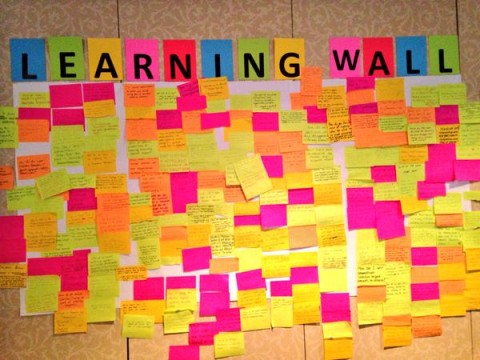
Just returning from the Champions for Change gathering in Washington, DC hosted by the Tamarack Institute and the Collective Impact Forum. I was in attendance with a couple of others from the Food Solutions New England Network Team to learn more about people’s experiences with creating and developing a “backbone” function in their “collective impact” efforts, and also had the opportunity to do a couple of skills sessions around IISC’s “Dimensions of Collaborative Success” framework from Facilitative Leadership for Social Change. Read More
March 20, 2015

I have had many conversations recently about network form and transition, all of which have me thinking of what we often talk about in our practice at IISC: balancing acts. The core approach that informs our work in the world is Facilitative Leadership, which strives to create and inspire the conditions for collaborative and net work that yields greater, more sustainable and equitable change. In co-creating these conditions, as process designers, facilitators, trainers and coaches, we invoke a variety of practices and frameworks, each of which has its own dynamic range of considerations. Read More
March 4, 2015
“You’ve got to keep asserting the complexity and the originality of life, and the multiplicity of it, and the facets of it.”
– Toni Morrison

I’ve been re-reading Niels Pfleaging’s short book Organize for Complexity and appreciating how it succinctly captures the current challenges for many groups and organizations trying to navigate complexity while clinging to old tools and beliefs. This can also be the nature of social change work amidst the significant shifts we are seeing. Here’s the trick – as things shift more, and more rapidly, people’s natural inclination may be to try to exert greater control or dig in to what is familiar but does not work. The more one does so, the worse things can get. As Pfleaging writes, we see a “high price for the illusion of control.” Within organizations this takes the form of various gaps – social, functional, and temporal – that make them increasingly irrelevant and ineffective. Responding to complexity requires (to borrow a phrase from Eugene Kim) new muscles and mindsets.
If I could summarize my own reading of Pflaegings’s book, I would put it this way – the world we are living into requires more integrated ways of seeing and doing, and this is hard to do (if not impossible) if people maintain highly differentiated ways of organizing themselves. There is really a baseline call for self-awareness and mindfulness so that one is able to respond not by default or fear, but with perspective and intention, which connects to the idea of “strengthening the network within” at the individual level. And it is important to reach out and connect this self-awareness to others . . .
“Problem-solving in a life-less system is about instruction. Problem-solving in a living system is about communication.”
-Niels Pflaeging
Read More
September 3, 2014
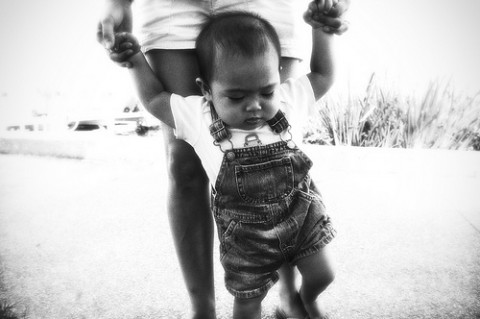
Photo by Tela Chhe
One mantra I have for working with groups is, “If you’ve seen one group, you’ve seen one group.” Part of the welcome and challenging nature of collaboration is that in each instance we are dealing with a unique organism or constellation of human beings coming together to get something done. As complex living systems, groups of people are not prone to simple “best practices” for getting them working in a prescribed way. There certainly are some “promising practices,” including what we teach at IISC in our Facilitative Leadership for Social Change courses. Still collaboration, including the practice of group facilitation, is a heuristic undertaking – an experience-based approach to problem solving, learning, and discovery that suggests solutions which are not guaranteed to be optimal. Read More
August 11, 2014

Photo by Synopia
A number of readings I’ve come across lately reference the important consideration of organizational structure and how it encourages or discourages collaboration. In a post from last week, I highlighted the book Reinventing Organizations by Frederic Laloux, which focuses on “evolutionary (Teal) organizations” that embrace an ethic of self-organization to facilitate more purpose-driven, holistic and responsible engagement on the part of organizational members. In order to encourage self-organization and intrinsic motivation, these entities adopt less formally hierarchical and fixed-role structures in favor of fluidity and networked leadership. According to Laloux, this brings more timeliness and relevance to the inner workings and responsiveness of these organizations. Read More
April 24, 2014
“Narratives can create a very different world, one where pressure evolves from a source of stress to a source of excitement, calling us to achieve even more of our potential, both as individuals and collectively.”
– John Hagel

Today’s post gives a big tip of the hat and bow of gratitude to John Hagel for his work on narrative, which I believe has much to offer networks for social change. First a little story . . . Read More



